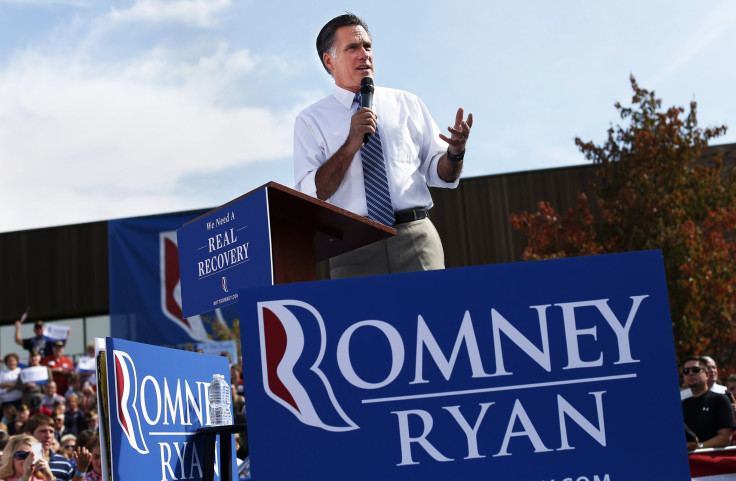On Eve Of Debate, More Doubts On Romney Tax Plan

Last week's vice presidential debate differed markedly from the more sedate first installment of three presidential confrontations, with more aggressive combatants facing tougher questions.
One illustrative moment came when moderator Martha Raddatz asked Rep. Paul Ryan to explain how Mitt Romney's tax plan would find enough revenue to offset a 20 percent, across-the-board cut in tax rates. Raddatz, who has received accolades for her determined performance, pressed the Republican vice presidential nominee as he sought to deflect the question, citing "big bipartisan agreements" forthcoming from Congress.
"Do you actually have the specifics, or are you still working on it, and that's why you won't tell voters?" Raddatz asked, later interjecting, "No specifics, yeah," as Ryan again deferred to Congress.
The Obama campaign has been working to make a similar point: namely that, for all that Romney has lambasted President Obama for allowing the deficit to explode, Romney's tax plan would not contain enough new revenue to keep the deficit under control.
The only way to do so, President Obama has charged, would be to increase the tax burden on the middle class. The nonpartisan Tax Policy Center has reached a similar conclusion, finding that eliminating tax breaks for the wealthy would not inject enough revenue.
When President Obama made this argument during the debate --"it's math. It's arithmetic," he said -- Romney cited six studies that vindicate his plan. Ryan invoked the same point, noting that "six studies have verified that this math adds up."
The Romney tax plan will almost certainly come up in the second round, scheduled for Tuesday night. Ahead of that clash, some critics are disputing the credibility of those six studies supporting Romney's framework.
Fox News Sunday host Chris Wallace pronounced the studies "very questionable" during a Sunday interview with Romney adviser Ed Gillespie, noting that they come from sources with clear conservative ties.
Two came from Marty Feldstein, a former economic adviser for Presidents Ronald Reagan and George W. Bush. In a Wall Street Journal op-ed and a post on the blog of Greg Mankiw, a Harvard economics professor who is also a top economic adviser to Romney, Feldstein argued that the cuts would stimulate more economic activity.
Feldstein also defined upper-income taxpayers who would lose some tax deductions as people making more than $100,000 a year, whereas the Tax Policy Center defined the middle class as Americans making less than $200,000 annually (Romney has also defined middle-income Americans as those making less than $200,000-$250,000). The average household income in the U.S. is $50,000.
Another of the studies is a paper authored by Princeton professor Harvey Rosen, which also contains an assumption, widely accepted by Republicans, that tax cuts would stimulate more taxable economic activity. Two others focusing on tax preferences for municipal bonds and life insurance buildups come, respectively, from the American Enterprise Institute and the Heritage Foundation, both conservative think tanks.
The final piece of evidence for the Romney tax plan is a white paper produced by the campaign itself, reinforcing the notion that the Republican nominee is selectively justifying his plan with biased evidence.
© Copyright IBTimes 2025. All rights reserved.





















